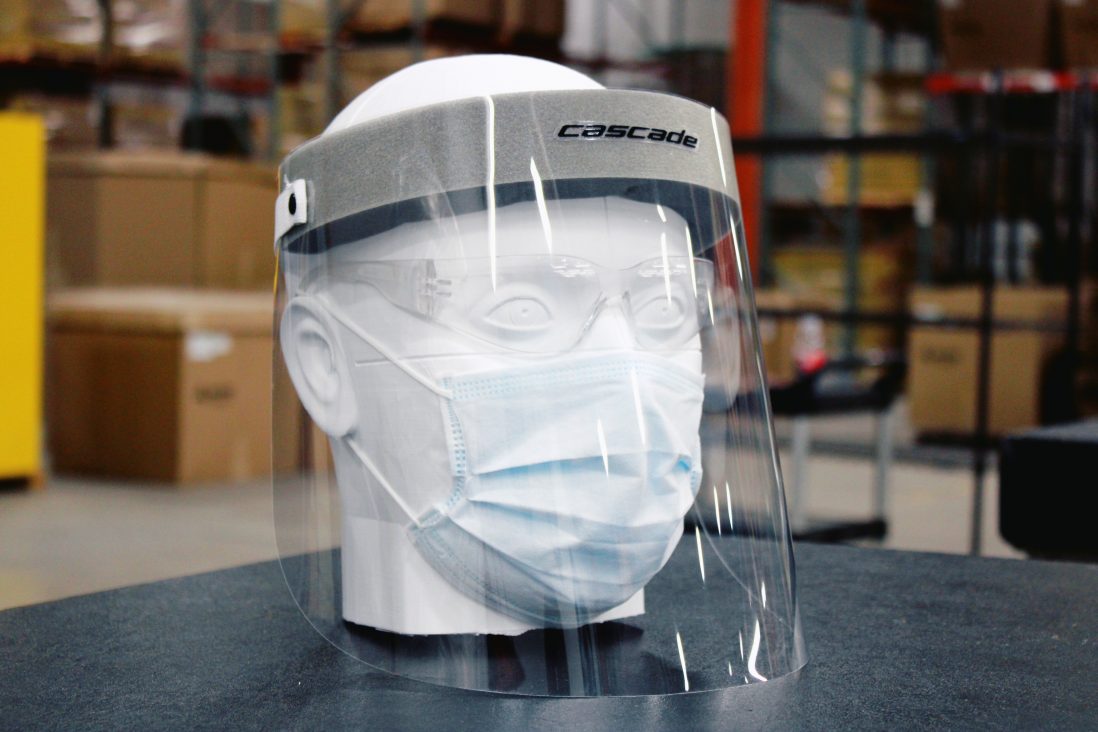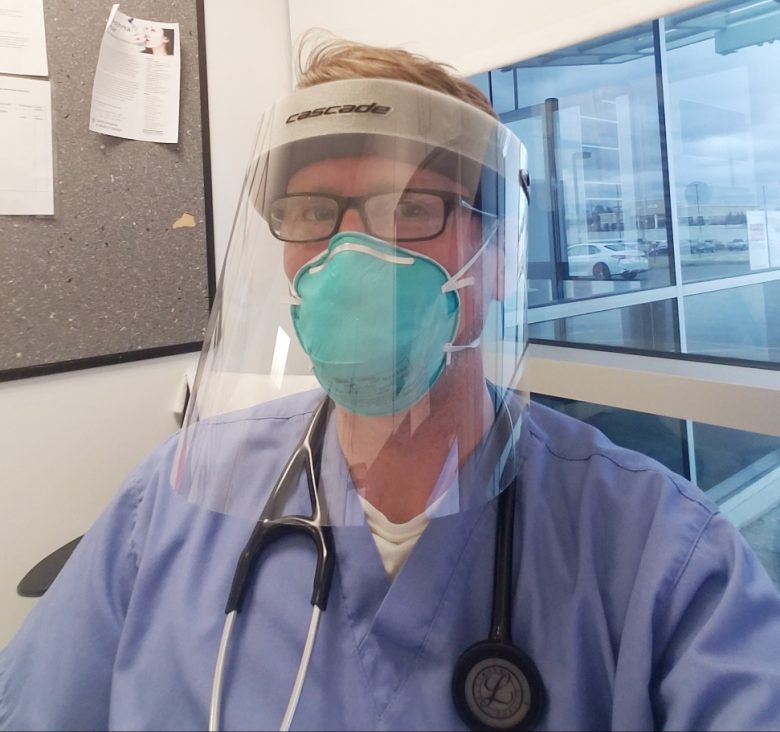Liverpool lacrosse company repurposes to join pandemic fight
Liverpool LAX company pivots to join pandemic fight
The American healthcare system faces hazardous shortages of personal protective equipment (PPE) as its workers battle the coronavirus pandemic. But one Central New York manufacturer has started mixing ingenuity with altruism to support doctors and nurses on the front lines and their own workers.
Cascade Lacrosse, a manufacturer of protective equipment for lacrosse players, was forced to shut down its Liverpool plant temporarily and furlough employees following New York Gov. Andrew Cuomo’s order closing non-essential businesses. Days later, the company’s designers and engineers paid closer attention to reports about PPE shortages.
“They said, ‘Hey, you know what? We’ve got all these parts. We can put this together. We can be part of this solution,’’ recounted Cascade Marketing Director Patrick O’Toole.
Two days of spitballing ideas for a face shield–using plastic, foam and other materials already inside the Liverpool plant–turned into prototype testing. The Cascade team videoconferenced with Brendan Johnston, an emergency department nurse practitioner, to run early designs by a frontline professional.

“You could almost easily see what was going to work and what was not,” Johnston explained. “Things might leave you too exposed … not enough shielding.”
Days after creating the first prototype, and one week after the first discussion, Cascade started rotating small shifts of previously idle workers back through its Liverpool plant and rolled its first batch of shields off the production line.
Cascade, which would normally use those raw materials to sell lacrosse helmets and other gear for profit, is selling the masks at cost to public and private organizations nationwide, prioritizing healthcare providers. Sister company Bauer said in a statement they’ve already maximized the number of orders they can fulfill, with plans to deliver 2.25 million masks by the end of May.
“The need is there,” Johnston reiterated.
While officials at Johnston’s hospital race to order more PPE, he said colleagues have resorted to a patchwork of remedies for their PPE needs. Some make their own gear and others use personal contacts to fast-track special shipments from organizations like Cascade. (Cascade has published its face shield assembly instructions on its website, so any individual or business with access to the raw materials can build independently.)
“We’re not out [of PPE], but we’re gonna run out,” said Johnston, whose hospital is just outside Boston, where COVID-19 cases are still on the rise and have yet to peak.

Johnston has observed many patients suspected of having coronavirus needing intubation procedures to support their breathing. (And he’s not alone.) The procedure, he said, enhances risk of coronavirus transmission via air or saliva particles and exacerbates the need for additional, clean PPE for frontline workers.
If frontline staff contract COVID-19, some hospitals are requiring those staffers to use personal vacation time while ill and fighting to recover, according to Johnston.
“It is causing a lot of outrage,” Johnston said. “This doesn’t affect me so much, but I feel awful for our nurses, techs and respiratory therapists.”
O’Toole said Cascade will continue producing as many masks as possible, rotating groups of 10 or more socially distancing workers through the Liverpool plant.
“It’s been great to see people … contribute however possible and really come together as this unifying community when there’s something much bigger than us.”





